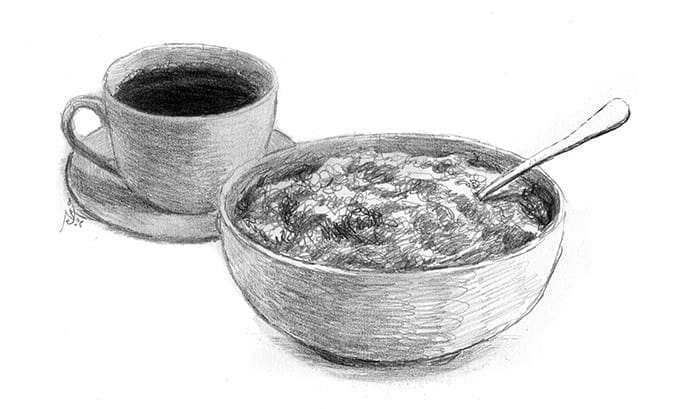
Lenten house on the prairie
By LORRAINE V. MURRAY, Commentary | Published March 5, 2015
I often approach my morning oatmeal with resignation. It’s healthy and my husband makes it before leaving for work so it’s convenient, but frankly, it is exceedingly dull.
These were my thoughts before reading the “Little House on the Prairie” books by Laura Ingalls Wilder, which fictionalize the real-life tribulations and triumphs of her childhood family in the Midwest during the late 19th century.
Believe me, no one would complain about the drudgery of eating oatmeal, especially when supplies ran out during a series of brutal blizzards that left the parents and four daughters dining—for months—on tea and bread, and nothing more.
The stories are intended for children, but since I hadn’t read them before, I decided to make up for lost time—and was mesmerized by the day-to-day glimpses into the stark simplicity of pioneer families’ lives.
But these delightful tales also helped me plan my Lenten strategy. You see, readers quickly realize how drastically the definition of luxury has changed since the days when people used horses for transportation, dug their own wells, milked cows and washed their homemade clothing by—what else?—hand.
The Ingalls family was reduced to burning hay one winter when the coal ran out—and temperatures plummeted to 40 degrees below freezing. When game was scarce they went without meat for months, and one daughter tasted her first orange when she was a teenager. Still, no matter how meager their meals or how cold they were, the children never forgot to thank God.
My house now seems to overflow with luxuries such as a pantry laden with cookies, chocolates, crackers and chips, and a freezer stash including chicken, beef and fish. We also have central air and heat, a late-model car, closets of clothing, a dishwasher and a washing machine.
I believe Lent is a good time to examine how God blesses us by meeting our basic needs everyday while also providing extras. For parents, the season provides an opportunity to sit down with your children and talk about the differences between necessities and luxuries.
The Ingalls children could easily list the necessities, which included shelter, bread, water, heat during the brutally cold winters, hay for the horses and a cookstove. During the hard times when grasshoppers decimated their crops, the children knew the necessities could run out—unless their father found a way to provide for them.
But during the good times, when the weather was mellow, the crops flourishing and the woods lush with animals, the family enjoyed sumptuous meals consisting of roasted turkey, potatoes whipped with home-churned butter and pie for dessert.
The books show the beauty of sacrificial love and how it keeps communities together. The father walked 200 miles to get a job; two young men risked their lives to travel through treacherous winter terrain to buy wheat for the starving families; one daughter took an arduous teaching job and gave all her earnings to her older sister for college.
During Lent we often sacrifice some pleasures out of love for God and neighbor. We might wash dishes by hand, read to the children instead of getting lost in Facebook world, drink coffee at home instead of indulging in the pricey latte at the corner shop. We can cut out movies and restaurant outings, and eat simple meals at home so we have more to give to the poor.
Lenten sacrifices quickly reveal how dependent we are on creature comforts—and may provide insights into our own greedy, needy self. As for me, there was one morning recently when I woke up to discover the power was out, which meant forgoing coffee for all of two hours—and I’m ashamed to admit what a big martyr I felt like.
I could almost hear a pioneer woman whispering in my ear, “Buck up! Stop whining!” When the electricity finally came back on, my mug of plain home-brewed coffee tasted better than any highfalutin latte—and, frankly, the oatmeal was like manna from heaven.
Lorraine Murray’s latest book is “Death Dons a Mask,” a mystery set at a small church in Decatur where a handsome seminarian unwittingly unleashes chaos. Artwork is by Jef Murray. You may contact the Murrays at lorrainevmurray@yahoo.com.